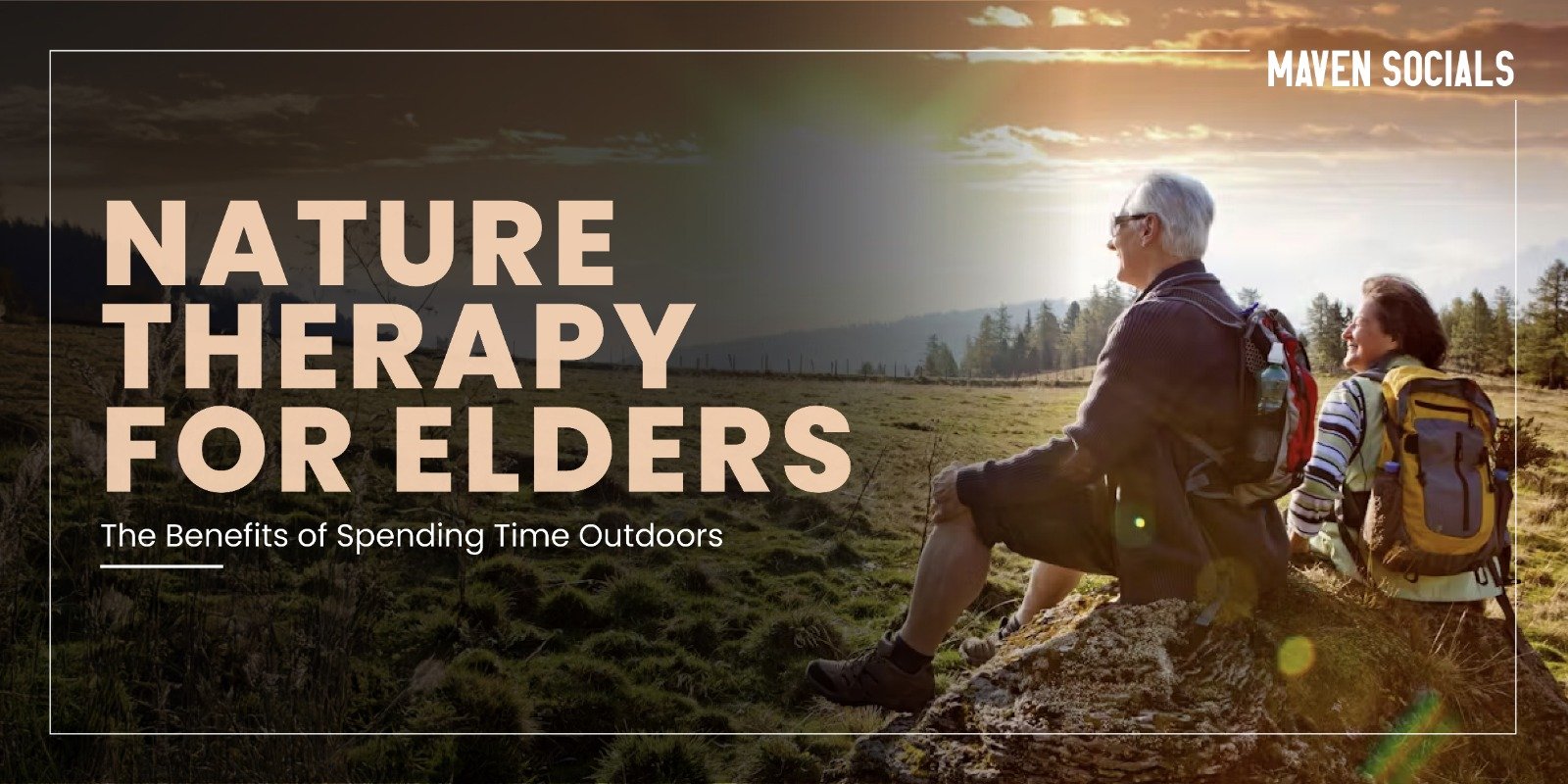In today’s fast-paced digital world, the healing power of nature therapy has emerged as a beacon of hope for enhancing seniors wellness India. As our elderly population continues to grow, the importance of maintaining both physical and mental well-being becomes increasingly crucial. Nature therapy, also known as ecotherapy, offers a remarkable solution that addresses the unique health challenges faced by older adults while providing them with accessible and enjoyable ways to improve their quality of life.
Understanding Nature Therapy and Ecotherapy
Nature therapy represents a holistic approach to healing that harnesses the inherent therapeutic properties of natural environments. This evidence-based practice, commonly referred to as ecotherapy, involves structured interactions with nature designed to promote physical, mental, and emotional well-being. For seniors in India, where traditional medicine has long recognized the connection between natural elements and health, this approach resonates deeply with cultural values while offering scientifically-proven benefits of nature exposure.
The concept of ecotherapy extends beyond simple outdoor recreation, encompassing various therapeutic modalities that utilize natural settings as healing environments. Research consistently demonstrates that regular exposure to green spaces can significantly impact elderly health outcomes, making nature-based interventions an invaluable component of comprehensive geriatric care. From forest bathing to therapeutic gardening, these practices offer seniors meaningful ways to reconnect with the natural world while addressing age-related health concerns.
The Science Behind Nature’s Healing Power for Elderly Health
Scientific studies have extensively documented the profound impact of nature exposure on elderly health, revealing measurable improvements in both physiological and psychological markers. When seniors engage in outdoor activities for seniors, their bodies produce lower levels of cortisol, the primary stress hormone, while simultaneously increasing the production of mood-enhancing neurotransmitters like serotonin and dopamine. This biochemical response forms the foundation of effective nature therapy interventions.
The benefits of nature extend to cardiovascular health, with regular outdoor exposure helping to regulate blood pressure and improve heart rate variability in older adults. Additionally, natural environments provide sensory stimulation that can enhance cognitive function and potentially slow the progression of age-related mental decline. These findings underscore the importance of incorporating ecotherapy principles into seniors wellness India programs, offering evidence-based alternatives to traditional medical interventions.
Vitamin D synthesis, facilitated by safe sun exposure during outdoor activities for seniors, plays a crucial role in bone health and immune system function. For elderly individuals who may spend limited time outdoors due to mobility constraints or lifestyle factors, structured nature therapy sessions can help address these deficiencies while providing additional therapeutic benefits that extend far beyond nutritional supplementation.
Mental Health Benefits: Reducing Stress and Improving Mood
The mental health advantages of nature therapy are particularly significant for seniors facing common age-related challenges such as isolation, depression, and anxiety. Regular participation in outdoor activities for seniors has been shown to reduce symptoms of depression by up to 50% in some studies, making ecotherapy a valuable adjunct to traditional mental health treatments. The calming presence of natural environments helps activate the parasympathetic nervous system, promoting relaxation and emotional equilibrium.
Seniors wellness India programs that incorporate nature-based interventions report improved mood stability and enhanced emotional resilience among participants. The rhythmic sounds of flowing water, gentle rustling of leaves, and chirping of birds create a natural soundtrack that soothes the nervous system and promotes mindfulness. This sensory experience is particularly beneficial for elderly individuals who may be dealing with grief, loneliness, or the stress of adapting to physical limitations.
The benefits of nature for mental health extend to cognitive function, with studies indicating that regular exposure to green spaces can improve attention span, memory retention, and executive functioning in older adults. Nature therapy sessions that include gentle mental challenges, such as identifying plant species or navigating walking trails, provide cognitive stimulation that can help maintain mental acuity while simultaneously offering the therapeutic advantages of outdoor environments.
Physical Health Improvements Through Outdoor Activities
Engaging in outdoor activities for seniors provides numerous opportunities for gentle, low-impact physical exercise that can significantly improve overall elderly health outcomes. Walking on natural terrain, participating in therapeutic gardening, or practicing tai chi in parks offers cardiovascular benefits while being easier on joints compared to traditional gym workouts. These activities form the cornerstone of effective nature therapy programs designed specifically for older adults.
The benefits of nature-based physical activities extend beyond cardiovascular improvements to include:
- Enhanced balance and coordination
- Improved flexibility and joint mobility
- Better proprioception and spatial awareness
- Reduced risk of falls
- Maintained muscle strength and bone density
Natural environments provide varied terrain and obstacles that challenge proprioception and spatial awareness, helping to prevent falls—a major concern for seniors wellness India programs. Regular participation in ecotherapy activities can help maintain muscle strength and bone density while providing the added advantage of fresh air and natural vitamin D exposure.
Nature therapy sessions that incorporate gentle movement activities can be particularly beneficial for seniors managing chronic conditions such as arthritis, diabetes, or heart disease. The natural anti-inflammatory properties of forest environments, combined with the stress-reducing effects of green spaces, can help alleviate symptoms and improve disease management outcomes. These holistic benefits make outdoor activities for seniors an invaluable component of comprehensive healthcare approaches.
Implementing Nature Therapy in the Indian Context
The rich biodiversity and varied landscapes of India provide exceptional opportunities for implementing nature therapy programs tailored to local contexts and cultural preferences. From the serene backwaters of Kerala to the lush gardens of Mysore, seniors wellness India initiatives can leverage diverse natural environments to create meaningful therapeutic experiences. Traditional practices such as meditation in temple gardens or morning walks in community parks align perfectly with ecotherapy principles while honoring cultural traditions.
Urban areas across India are increasingly recognizing the importance of green spaces for elderly health, with cities developing senior-friendly parks and nature trails specifically designed for outdoor activities for seniors. These initiatives incorporate accessible pathways, comfortable seating areas, and shade structures that accommodate the specific needs of older adults while maximizing the benefits of nature exposure. Community-based nature therapy programs can utilize these spaces to offer structured activities such as:
- Guided nature walks
- Outdoor yoga sessions
- Therapeutic gardening workshops
- Bird watching groups
- Meditation circles in natural settings
Ecotherapy programs in India can also incorporate traditional healing practices such as Ayurvedic principles, which emphasize the connection between natural elements and human health. By combining modern scientific understanding with ancient wisdom, seniors wellness India programs can offer holistic approaches that resonate with cultural values while delivering evidence-based therapeutic benefits. This integration creates more meaningful and sustainable nature therapy experiences for elderly participants.
Simple Ways for Seniors to Connect with Nature
Implementing nature therapy doesn’t require expensive equipment or extensive travel; simple daily practices can provide significant benefits of nature exposure for seniors. Morning walks in local parks, tending to small container gardens on balconies, or simply sitting outdoors while listening to bird songs can serve as effective outdoor activities for seniors. These accessible approaches ensure that ecotherapy principles can be incorporated into daily routines regardless of mobility limitations or economic constraints.
Seniors wellness India programs can encourage the development of nature observation skills, such as:
- Keeping journals of seasonal changes
- Identifying local bird species
- Photographing flowering plants
- Creating nature-based art projects
- Participating in citizen science projects
These activities combine cognitive stimulation with nature therapy benefits while providing seniors with meaningful hobbies that foster continued learning and engagement. The benefits of nature observation extend beyond physical health to include enhanced sense of purpose and connection to the environment.
Group outdoor activities for seniors such as community gardening projects or nature-based social gatherings can address the dual challenges of social isolation and limited nature exposure. These collaborative ecotherapy experiences foster social connections while providing the therapeutic advantages of natural environments. Intergenerational programs that pair seniors with younger community members for nature-based activities can create additional social benefits while promoting knowledge transfer and mutual understanding.
Overcoming Barriers and Safety Considerations
While the benefits of nature for seniors are well-established, implementing nature therapy programs requires careful attention to safety considerations and potential barriers. Seniors wellness India initiatives must address concerns such as mobility limitations, weather sensitivity, and transportation challenges to ensure that outdoor activities for seniors remain accessible and safe. Proper planning and gradual progression can help seniors overcome initial hesitations about participating in ecotherapy programs.
Safety protocols for nature therapy sessions should include:
- Appropriate sun protection measures
- Adequate hydration strategies
- Emergency communication plans
- Weather monitoring and contingency planning
- Trained facilitators with first aid knowledge
Elderly health considerations such as medication schedules, chronic condition management, and physical limitations must be incorporated into activity planning to ensure positive outcomes. Trained facilitators who understand both ecotherapy principles and geriatric health needs are essential for successful program implementation.
Creating supportive environments that encourage participation while respecting individual limitations is crucial for maximizing the benefits of nature therapy. Outdoor activities for seniors should offer multiple participation levels, allowing individuals to engage according to their comfort and ability levels. This flexible approach ensures that nature therapy remains inclusive and accessible to diverse populations within seniors wellness India programs.
The Future of Nature Therapy for Seniors in India
As awareness of nature therapy benefits continues to grow, seniors wellness India programs are increasingly incorporating ecotherapy principles into comprehensive care models. Healthcare providers, community organizations, and government agencies are recognizing the cost-effectiveness and therapeutic value of nature-based interventions for elderly health promotion. This growing acceptance suggests a promising future for expanded access to outdoor activities for seniors across diverse communities.
Innovation in nature therapy delivery methods, including virtual nature experiences and technology-enhanced outdoor programs, may help overcome geographical and mobility barriers while maintaining the core benefits of nature exposure. However, these technological supplements should complement rather than replace direct contact with natural environments whenever possible. The goal remains to provide authentic ecotherapy experiences that foster genuine connections between seniors and the natural world.
The integration of nature therapy into mainstream healthcare and wellness programs represents a significant opportunity to improve seniors wellness India outcomes while reducing healthcare costs. By emphasizing prevention and holistic well-being through outdoor activities for seniors, these programs can help create healthier, more resilient elderly populations better equipped to age in place successfully.
Conclusion
Nature therapy offers a powerful, accessible, and culturally appropriate approach to enhancing seniors wellness India through evidence-based ecotherapy interventions. The documented benefits of nature exposure for both physical and mental health make outdoor activities for seniors an invaluable component of comprehensive geriatric care. As communities across India continue to develop and expand these programs, older adults will have increased opportunities to experience the healing power of nature while maintaining their independence and quality of life.
The future of elderly health promotion lies in recognizing and harnessing the therapeutic potential of our natural environments. By embracing nature therapy principles and making outdoor activities for seniors more accessible, we can create supportive communities that honor the wisdom of our elders while providing them with the tools and opportunities necessary for continued growth, healing, and well-being throughout their golden years.













